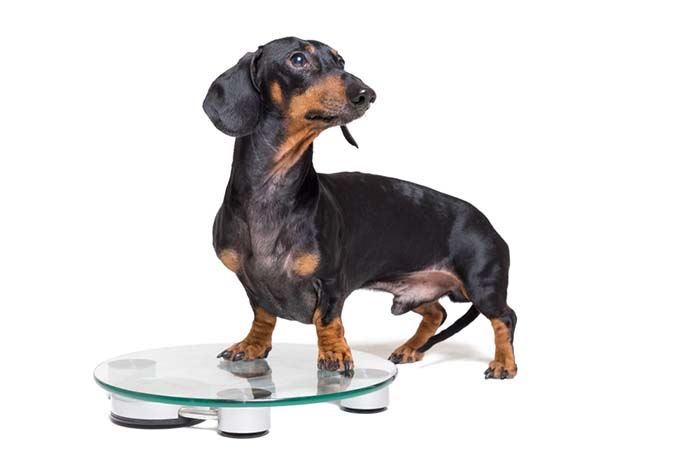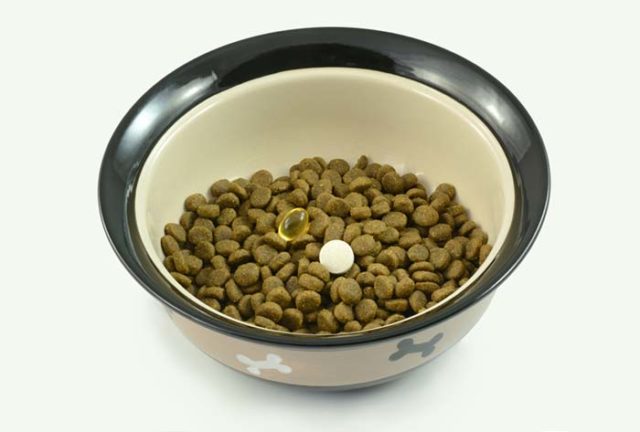
Table of Contents
We all know that obesity is a serious issue in the USA, with some stats showing that obesity rates exceed 25% in 48 US states, which means that one in four adults is obese in these states. With obesity being so prevalent among people, it's not a surprise that pets are having this problem, too.
Why Is Dog Obesity Dangerous?
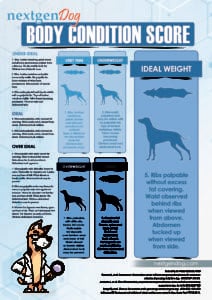 According to the Association for Pet Obesity Prevention (APOP), obesity affected 60% of cats and 56% of dogs in 2017 in the US. Obesity impacts a dog’s health and longevity. There are many long-term effects of dog obesity, including diabetes, osteoarthritis, hypertension, heart disease, and increased risk of developing malignant tumors, to name just a few. Obese dogs are also more likely to have a much shorter lifespan.
According to the Association for Pet Obesity Prevention (APOP), obesity affected 60% of cats and 56% of dogs in 2017 in the US. Obesity impacts a dog’s health and longevity. There are many long-term effects of dog obesity, including diabetes, osteoarthritis, hypertension, heart disease, and increased risk of developing malignant tumors, to name just a few. Obese dogs are also more likely to have a much shorter lifespan.
Even if your dog is not yet obese but is overweight, health problems are likely to begin developing at this stage and without further action obesity is inevitable. Dogs are considered overweight when their weight is 10-20% higher than their ideal body weight, and they are considered obese when their weight is more than 20% higher than their ideal body weight.
Higher quality or restricted diet and exercise are the best ways to help a dog lose weight, but there are many weight loss supplements for dogs you can use to speed up the process and make it easier. Always discuss any diet changes and supplement use with your veterinarian beforehand to get the best results.
ALSO READ: The Best Weight Loss Dog Food for Fat Dogs
The 8 Best Dog Supplements for Weight Loss
Dirlotapide
Dirlotapide is an effective pharmaceutical drug developed specifically for overweight and obese dogs to help them lose weight. Unlike the above two supplements that were first used for people, Dirlotapide is actually only approved for use in dogs.
This drug restrains the release of dietary fats from cells in the intestines into the bloodstream. That is done because the accumulation of fat in these intestinal cells leads to feelings of fullness and decreased appetite. Basically, Dirlotapide is used primarily as an appetite suppressant for dogs on a restricted calorie diet.
In studies, this drug has been successfully tested for safety among dogs, and it was the first FDA-approved drug for obese dogs. You can get Dirlotapide through veterinarians and veterinary prescriptions only. It cannot be purchased over the counter.
L-carnitine
L-carnitine is a vitamin-like substance made from amino acids. It is found naturally in proteins from animal sources and can help with weight loss in both humans and animals.
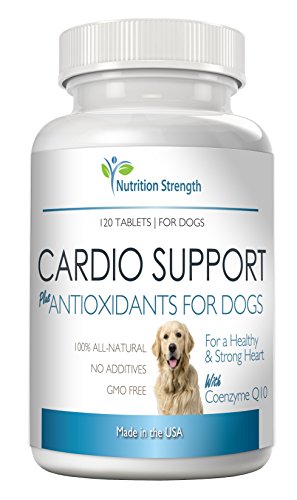 This substance helps the dog's body cells produce energy from fats. It sticks to fatty acids and transports them from the body of the cell to mitochondria, which is a cellular organ that produces more sustained energy.
This substance helps the dog's body cells produce energy from fats. It sticks to fatty acids and transports them from the body of the cell to mitochondria, which is a cellular organ that produces more sustained energy.
L-carnitine facilitates fat usage in dogs that are on a calorie-restricted diet. A 1998 study showed that dogs who were given L-carnitine supplements lost more body weight than dogs who were on a regular restricted diet without the supplement.
It's generally a safe option and one of the most effective ones among dog weight loss supplement choices we have around. You can find it added in different health supplements for dogs such as Cardio Support from Nutrition Strength or buy it stand-alone. You can get this supplement at your local pet store, markets, pharmacies, and health food stores.
L-Arginine
Similar to the L-Carnitine supplement, L-Arginine is another amino acid substance. Although the effects of this particular chemical still have to be researched further, some initial studies have shown promising weight loss results in obese mice, pigs and humans, without any calorie restriction.
The results suggest that the supplement can be used for dogs which can’t be put on a calorie restriction and dogs which only need to shave off a few extra pounds, most notably small and toy breeds. Note that while it's considered safe for animals, there is no proper research on testing L-Arginine with dogs – consult your veterinarian about the use of this supplement and to get the appropriate dosage.
White Kidney Bean Extract
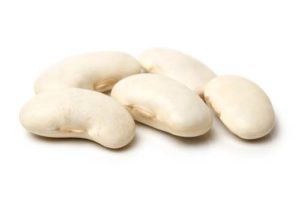 According to studies, white kidney bean extract is one of the most effective starch blockers, and it works for humans as well as dogs. It stops the breakdown of starch and stops the dog's body from absorbing it by interfering with a digestive enzyme called alpha-amylase, whose role is to break starch down into simple sugars.
According to studies, white kidney bean extract is one of the most effective starch blockers, and it works for humans as well as dogs. It stops the breakdown of starch and stops the dog's body from absorbing it by interfering with a digestive enzyme called alpha-amylase, whose role is to break starch down into simple sugars.
In a 2004 study by the American Holistic Veterinary Medical Association (AHVMA) with obese and overweight canines, those that were given a starch blocker for the duration of 9 weeks, 88% of dogs lost an average of 4.61% of their body weight.
The FDA has given this dog weight loss supplement GRAS (generally regarded as safe) status. For best results, you should sprinkle this starch blocker on your dog’s meal for nine weeks. The appropriate dosage should be recommended by your vet, but usually, it is 500mg for dogs under 50 pounds and 1.5 grams for dogs over 80 pounds.
DHEA (Dehydroepiandrosterone)
Dehydroepiandrosterone is a steroid hormone responsible for the production of estrogen and testosterone in dogs and humans. Studies have shown that DHEA, combined with a low-calorie diet, can produce good weight loss results in overweight and obese dogs. It can also help with cholesterol levels.
However, the increase in testosterone and estrogen and the potential health side effects are still not properly researched in the veterinary community. You should administer this supplement with caution and only under your vet’s supervision.
Omega-3 Fatty Acids
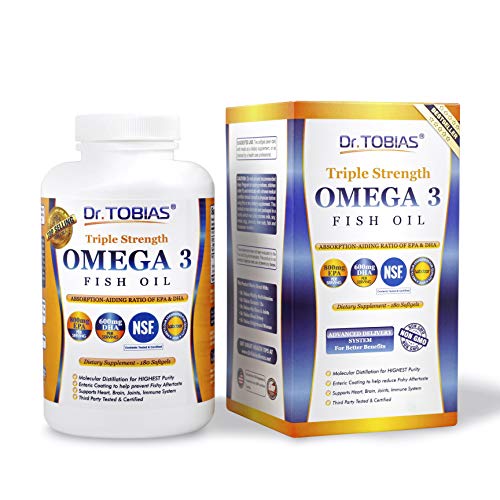 The primary source of Omega-3 fatty acids is fatty fish, but adding fish to your dog's daily diet may not be productive due to the higher calorie amount. Omega-3 fatty acids can be given in the form of fish oil supplements instead to get the benefits of speeding up weight loss in dogs. Fish oil has a number of other proven health benefits for dogs, too.
The primary source of Omega-3 fatty acids is fatty fish, but adding fish to your dog's daily diet may not be productive due to the higher calorie amount. Omega-3 fatty acids can be given in the form of fish oil supplements instead to get the benefits of speeding up weight loss in dogs. Fish oil has a number of other proven health benefits for dogs, too.
There's a very large body of research on omega-3 and its health benefits as well as its potential for weight loss. Omega-3 fatty acids affect mitochondria in cells, which are responsible for generating the body’s energy and heat from digested food. Since they have a fat-burning property, omega-3 fatty acids can help dogs lose weight in combination with an appropriate diet.
Chitosan
Chitosan, or chitin as it is also known, is a dietary supplement. It is made from a starch commonly found in the skeleton of shellfish, like crab or shrimp.
Although the weight loss benefits of chitosan for dogs still have to be proven with further research, it is believed that this supplement can help with weight loss since it binds with fat, which prevents the fat from being absorbed. It also passes through the intestines without being digested, adding no calories in the process.
Generally, chitosan is given 30-60 minutes before a meal for it to become properly activated. Consult your vet if this is an appropriate drug for your pet, for the right dosage, and for how much water is necessary with that dose to prevent cramping and constipation.
Conjugated Linoleic Acid (CLA)
These supplements are basically linoleic acid isomers that seem to promote and increase lipid oxidation or fat breakdown. However, the exact way in which they do that is still unknown to scientists.
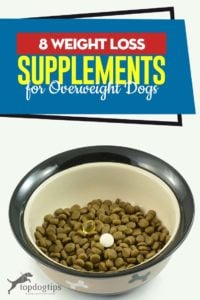 Just like with chitosan, these dog weight loss supplements still need to be researched further in order to prove their effects when it comes to weight loss, although some randomized studies showed promising results.
Just like with chitosan, these dog weight loss supplements still need to be researched further in order to prove their effects when it comes to weight loss, although some randomized studies showed promising results.
Using a dog weight loss supplement to improve or speed up the progress is possible, but it has to come with changes in diet increased exercise, and generally a well-structured dog slimming down plan. These eight weight loss supplements for dogs are the best you can currently find on the market, but you shouldn’t use them without consulting your veterinarian first.
READ NEXT: Ask a Vet – How to Put an Overweight Dog on a Diet?


